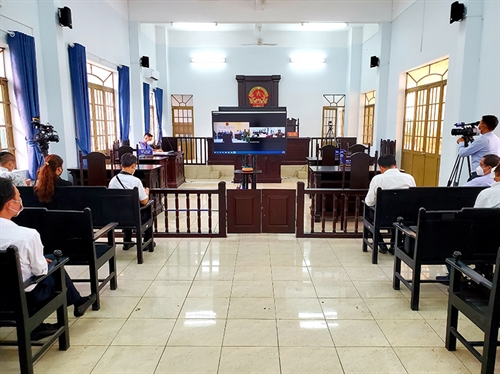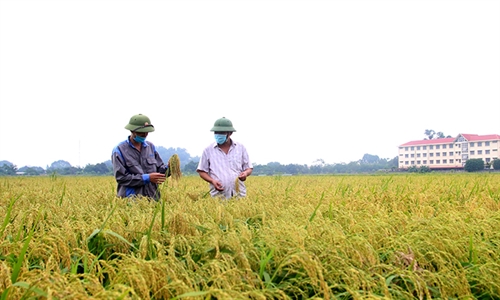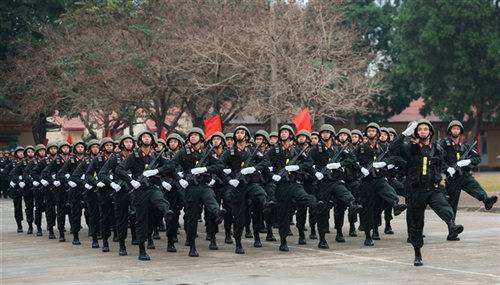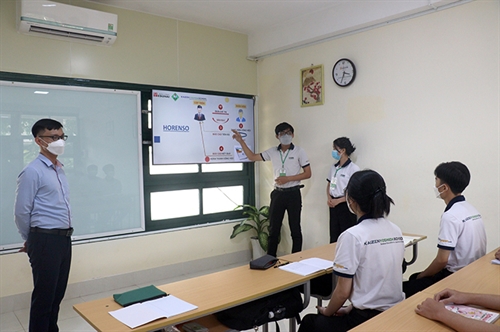From March 1, the new Anti-Money Laundering Law comes into force and supersedes its 2012 predecessor.
Adopted in last November, the 66-article Anti-Money Laundering Law (the Law) provides for measures to prevent, detect, stop and handle organizations and individuals committing acts of money laundering. It also defines responsibilities of agencies, organizations and individuals for money laundering prevention and combat and introduces provisions on international cooperation on money laundering prevention and combat.
Compared to its 2012 version, the Law has noteworthy new provisions.
Reporting entities
According to Article 4 of the Law, reporting entities are classified into two groups, including financial institutions and organizations or individuals engaged in related non-financial sectors and trades.
The first group includes entities licensed to carry out one or several of the following operations: (i) receiving deposits; (ii) providing loans; (iii) practicing financial leasing; (iv) proving payment services; (v) providing intermediary payment services; (vi) issuing negotiable instruments, bank cards and money transfer orders; (vii) providing banking guarantee and financial commitments; (viii) providing foreign exchange services and monetary instruments on the monetary market; (ix) providing securities brokerage; (x) providing securities investment consultancy and securities issuance underwriting; (xi) managing securities investment funds; (xii) managing securities investment portfolios; (xiii) conducting life insurance business; and (xiv) providing currency exchange services.
The second group covers entities that conduct one or more of the following operations:
- Dealing in prize-winning games, including prize-winning video games; games on telecommunications networks or the Internet; casino; lottery; or betting;
- Conducting real estate business, except lease or sub-lease of real estate and provision of real estate consultancy services;
- Trading in precious metals and gems;
- Providing accounting services; providing notarization services; providing legal services of lawyers and law-practicing organizations; and,
- Providing enterprise establishment, management and operation services; providing corporate directorship and secretarial services to third parties; and providing legal arrangement services.
Compared to the 2012 Law, the Law adds intermediary payment service providers as reporting entities.
To cover possible emerging activities, the Law assigns the Government to specify emerging activities that are exposed to money laundering risks of reporting entities other than those mentioned above after obtaining the consent of the National Assembly Standing Committee.
Money laundering risk assessment
Once every five years, the State Bank will take charge of carrying out the national risk assessment of money laundering and submit to the Government for approval the assessment results and post-assessment plans. The national risk assessment of money laundering will be carried out also for emerging activities that are possibly exposed to money laundering risks.
Meanwhile, ministries and sectors have to disseminate results of the national risk assessment of money laundering within their ministries and sectors and to reporting entities under their management and, at the same time, take measures to mitigate identified risks. They must also update results of the assessment of money laundering risks based on the implementation of post-assessment plans or upon the emergence of new risks in the fields falling under their management before sending them to the Central Bank. Based on updated results of risk assessment received from ministries and sectors, the State Bank will sum up and submit to the Government for approval the updated results of the national risk assessment of money laundering and implementation plans after the updating.
As stated in the Law, reporting entities will have to assess their money laundering risks. The assessment results must be updated on an annual basis. For institutional reporting entities, results and updated results of risk assessment must be approved according to their internal regulations. Individual reporting entities will report on results and updated results of risk assessment to the State Bank and ministries and sectors performing the sector-based state management of the reporting entities within 45 days from the date of completion of the assessment. For institutional reporting entities, the reporting deadline is the date when such results are approved. Results and updated results of risk assessment will be disseminated within entire systems of the reporting entities.
International cooperation on money laundering prevention and combat
The Law says that international cooperation on money laundering prevention and combat will be undertaken on the principles of respect for independence, sovereignty, territorial integrity, national security, mutual benefit, and compliance with Vietnam’s law, treaties to which Vietnam is a contracting party, and international agreements between Vietnamese signatories and foreign signatories.
In case there is no treaty or international agreement between Vietnam and a foreign country, the exchange, provision and transfer of information in international cooperation on money laundering prevention and combat will be carried out on the principle of reciprocity and in compliance with international law and practices, not running counter to Vietnam’s law.
State authorities will conduct international cooperation on money laundering prevention and combat with the contents stated in Article 6.2 of the Law. While carrying out international cooperation activities, these bodies may refuse to exchange, provide or transfer information on money laundering prevention and combat in the cases specified in Article 6.3 of the Law.-









